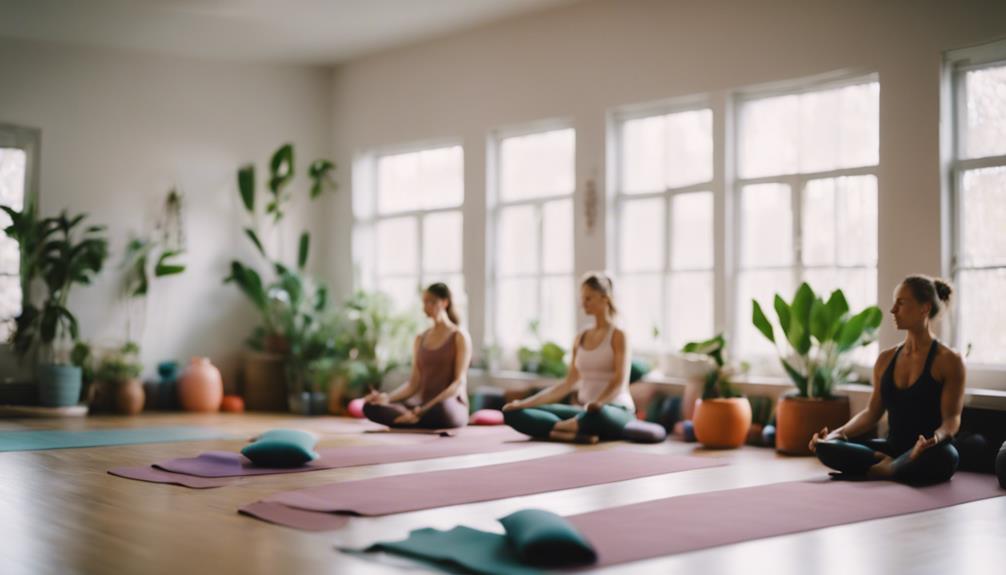Yoga is an ancient practice that has evolved over centuries, offering various styles and techniques that cater to different needs and preferences. Whether you are a beginner or an experienced practitioner, understanding the different types of yoga can help you choose the right one for your physical, mental, and spiritual wellness. In this comprehensive guide, we will explore the various types of yoga, their unique characteristics, and how they can benefit you.
The Roots of Yoga: An Overview
Yoga originated in ancient India over 5,000 years ago, combining physical postures, breathing exercises, and meditation to enhance overall well-being. The term “yoga” derives from the Sanskrit word “yuj,” which means to unite or join. This practice aims to unite the body, mind, and spirit, fostering a sense of balance and harmony. Over time, various schools of thought emerged, leading to the development of distinct yoga styles, each with its philosophy and approach to practice. Understanding these different types of yoga is essential for anyone looking to embark on a journey of self-discovery and holistic health.
Hatha Yoga: The Foundation of Physical Practice
Hatha Yoga is often considered the foundation of many modern yoga styles. It focuses on physical postures (asanas) and breathing techniques (pranayama), making it an excellent choice for beginners. Hatha classes typically involve slow-paced movements and gentle stretches, allowing practitioners to build strength, flexibility, and balance gradually. This style emphasizes alignment and mindfulness, helping individuals connect with their bodies and breath. If you’re new to yoga and looking for a gentle introduction, Hatha Yoga is a fantastic starting point.
Vinyasa Yoga: Flowing with Breath
Vinyasa Yoga is characterized by its dynamic and flowing sequences that link breath with movement. Often referred to as “flow” yoga, this style encourages practitioners to transition smoothly from one pose to another, creating a continuous flow of energy. Vinyasa classes can vary in intensity, allowing for creative and personalized sequences tailored to different levels of experience. This type of yoga enhances cardiovascular fitness, builds strength, and cultivates mindfulness. If you enjoy a more energetic practice that keeps you engaged, Vinyasa Yoga may be the perfect fit for you.
Ashtanga Yoga: The Structured Path
Ashtanga Yoga is a rigorous and structured practice that follows a set sequence of postures. Developed by Sri K. Pattabhi Jois, this style emphasizes the synchronization of breath and movement, creating a powerful and transformative workout. Ashtanga is divided into six series, each designed to build upon the previous one, allowing practitioners to progress at their own pace. This style is best suited for those who appreciate discipline and a clearly defined framework in their practice. Ashtanga Yoga not only enhances physical strength and flexibility but also fosters mental focus and resilience.
Bikram Yoga: The Heat is On
Bikram Yoga, also known as “hot yoga,” is practiced in a heated room, typically set at around 105°F (40°C) with high humidity. This style consists of a specific sequence of 26 postures and two breathing exercises, designed to promote detoxification and enhance flexibility. The heat allows muscles to relax and stretch more deeply, making it easier to achieve postures. While Bikram Yoga can be incredibly beneficial, it may not be suitable for everyone, especially those with heat sensitivity or certain medical conditions. If you enjoy a challenging and intense workout, Bikram Yoga may be worth exploring.
Yin Yoga: The Art of Stillness
Yin Yoga is a slow-paced style that focuses on passive stretching and deep relaxation. In Yin Yoga, poses are held for an extended period, typically ranging from three to five minutes, allowing practitioners to target the connective tissues, such as ligaments, joints, and fascia. This style encourages a meditative approach, promoting mindfulness and awareness of the body. Yin Yoga is particularly beneficial for improving flexibility, reducing stress, and cultivating a sense of calm. If you’re seeking a restorative practice that encourages introspection, Yin Yoga may be the ideal choice.
Restorative Yoga: Deep Relaxation for Stress Relief
Restorative Yoga is designed to promote deep relaxation and rejuvenation. This gentle style utilizes props, such as blankets, bolsters, and straps, to support the body in various poses, allowing practitioners to completely relax and unwind. Each pose is held for an extended period, encouraging the body to release tension and stress. Restorative Yoga is perfect for those experiencing fatigue, anxiety, or stress-related conditions. It is also a great complement to more vigorous practices, providing a balance between effort and ease. If you need a break from a fast-paced lifestyle, consider incorporating Restorative Yoga into your routine.
Choosing the Right Type of Yoga for You
With so many types of yoga available, choosing the right one for your individual needs can be overwhelming. It’s essential to consider your fitness level, goals, and preferences when selecting a style. For beginners, Hatha Yoga or Vinyasa Yoga may be more suitable, while experienced practitioners might explore Ashtanga or Bikram Yoga for a more challenging workout. Additionally, incorporating restorative practices like Yin or Restorative Yoga can help create a well-rounded yoga experience that balances strength and relaxation. Ultimately, the best type of yoga is the one that resonates with you and supports your journey towards holistic health and well-being.
In conclusion, understanding the various types of yoga can significantly enhance your practice and overall wellness. Each style offers unique benefits and approaches, allowing individuals to tailor their experience to their specific needs. Whether you seek physical strength, mental clarity, or emotional balance, there is a type of yoga that can support your journey. Take the time to explore different styles, listen to your body, and find the practice that feels right for you. Embrace the transformative power of yoga and embark on a path of self-discovery and healing.Where Health and WellnessWhat Pens Work With A Lenovo Yoga Book 10.1
